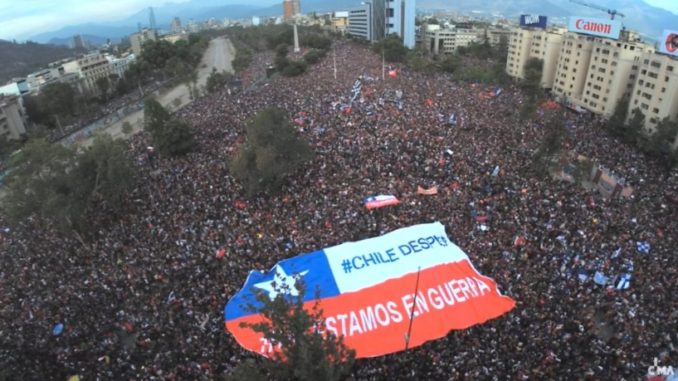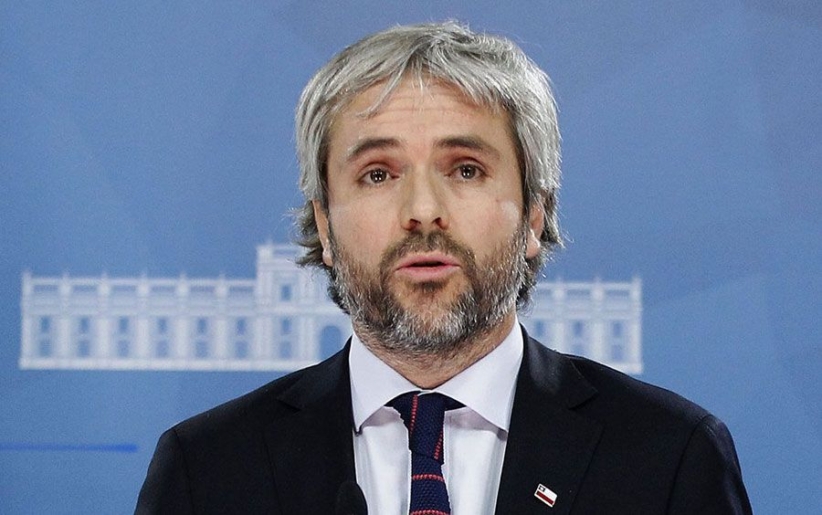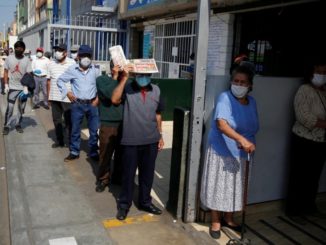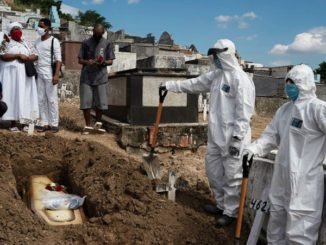
SANTIAGO – A long meeting of almost three hours was held on Sunday between President Sebastián Piñera and the leaders of Chile Vamos parties, which was also attended by the heads of the bench and the members of the committees of the Constitution of the House and Senate.
Interior Minister Gonzalo Blumel said the president, cabinet members and political allies had agreed Congress should lead the process of re-writing the constitution. The document would be put to a public referendum.
“Above all, we must focus on the goal of reconfiguring the social contract, which has arisen as a fundamental demand of our citizens,” Blumel told a news conference on Sunday night.
During the meeting, Blumel said, it was agreed to “start the path to move towards a new Constitution”, thus deepening the announcement of modifications made by Piñera.
“We understand that this work we have to do thinking about the country and on the basis of being able to reconfigure, rebuilding the social pact, which in recent times we have seen that it has been a demand of citizenship,” said Blumel.

Regarding the mechanisms that will be used to start drafting a new Magna Carta, the Secretary of State explained that, “the best way, the best formula, is to work on the basis of a constitutional congress that has broad citizen participation”. The idea, according to Blumel, is that the Congress – which did not give more details – is responsible for collecting and including citizen demands through a process of national debate, and whose text must be ratified by a plebiscite.
“The Constitution is the most important law, it is everyone’s house and it has to be ratified by the citizens to be the new body, the new house that shelters us for the next few years,” said the minister. On the way in which the process will begin, Blumel said that “we are going to start a broad dialogue with all sectors and social forces to reach broad agreements,” although he avoided delivering deadlines for now.
“We want to work urgently but also with responsibility,” he said.
From Chile Vamos, both the president of the UDI, Jacqueline van Rysselberghe, and the helmsman of RN, Mario Desbordes, expressed their support for the Executive initiative and called on the opposition to fold and expedite the discussion to move the project forward.
“It is necessary to generate a Magna Carta that protects the rights, and if it is necessary to make a new Constitution we are open to preserve it,” said the union leader, along with pointing out that “we are absolutely available to modify or make a new Constitution, but we believe that the opposition has to take a step and pave to move forward. ”
For its part, Desbordes said that “what is coming now is dialogue with the political and social forces, talk and listen, and within the shortest possible time, give a schedule” to the project. “National Renovation will support the management that Minister Blumel is doing with all the strength of the world and with what has been agreed with the President of the Republic today. This coalition is totally open to a new Constitution. Now we have to listen to the citizens,” he concluded.
#Chile: Independent experts condemn excessive use of force & acts of violence in recent protests. At least 20 people reportedly killed & about 1600 hurt, incl. police officers. "Violence can never be the answer to people's social and political demands" ? https://t.co/5h4syko94L pic.twitter.com/dc2cromEfj
— UN Special Procedures (@UN_SPExperts) November 8, 2019
Chile has been stunned by three weeks of sometimes violent and deadly protests by people fed up with the status quo. They cite low wages, high costs for education and health care and a yawning gap between rich and poor in a country dominated politically and economically by a few old, elite families.
Since October 18, at least 20 people have been killed, while businesses have suffered billions of dollars in damages and Santiago’s public transport system has been hobbled.



